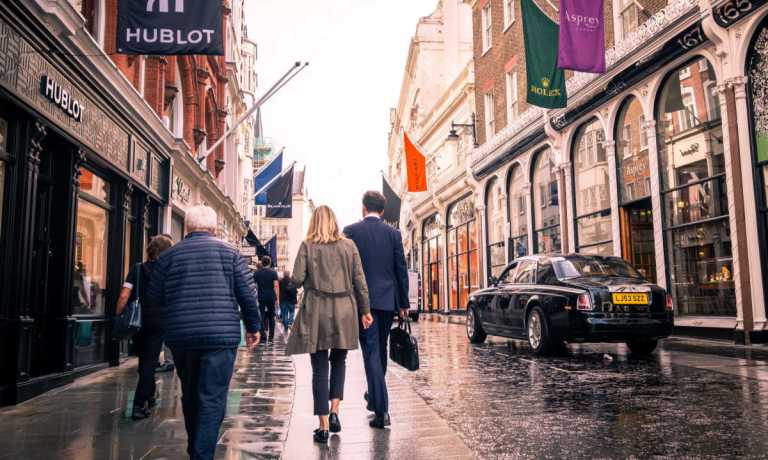
Dek: The decision to scrap a VAT exemption for travelers to the U.K. will be felt most by the country’s luxury retailers, which are largely dependent on Chinese and other international customers now subject to a 20% tax on purchases.
Of all the policy miscalculations of former U.K. Prime Minister Liz Truss’ short-lived government, the decision made by Jeremy Hunt, the new Treasury Chief, to backtrack on his predecessor’s move to scrap Value Added Tax (VAT) for tourists, could be one of the least appreciated by the country’s struggling retail sector.
Marking the third 180-degree turn on the issue since 2020, when the then-Chancellor Rishi Sunak ended duty-free shopping in a bid to raise extra funds for his pandemic-era job protection schemes, U.K. retailers argue that the latest decision to tax foreigners on their purchases will have a negative impact on sales.
Related: Pound Rebounds on New UK Chancellor’s First Day but Import-Export Challenges Remain
London’s high-end retail sector, for example, will be disproportionately affected by the VAT rules, which will make the city one of the few international shopping destinations in Europe where tourists aren’t eligible for tax refunds.
And with VAT in the U.K. standing at 20%, retailers have much to lose if international consumers of luxury goods, who are far more likely to take advantage of duty-free tax exemptions, cut down on spending.
Chinese Travelers: A $2 Billion Opportunity
Prior to the pandemic, the U.K. was on course to see 1 million Chinese travelers per year. According to the British Tourist Authority, China is the U.K.’s second most valuable source market after the U.S., with Chinese visitors spending 1.7 billion pounds ($1.92 billion) in the U.K. in 2019.
See more: Europe’s High Street Retailers Feel Loss of Chinese Luxury Shoppers
In London alone, Chinese visitors to the U.K. spent an average 865 million pounds ($975.7 million) per year between 2017 and 2019, over half of the total amount they spent nationwide.
Tourism board Visit Britain found that shopping tops the list of activities carried out by Chinese tourists, followed by indoor dining, touring famous monuments and buildings, and visiting museums or galleries.
Moreover, 73% of all Chinese visitors to the U.K. went shopping at least once during their trip, compared to a 69% average for all other national traveler groups.
Chinese tourists also showed a higher propensity to purchase luxury goods in the country. While just 9% of travelers from other countries bought a bag or purse during their visit, this figure rises to 26% among Chinese visitors to the U.K.
Of course, China is not the only source of overseas money for the U.K.’s retail sector. But as the second most prolific customer group, any decline in Chinese visitors’ spending driven by VAT will have a detrimental effect on an industry that is still struggling to hit its pre-pandemic visitor levels.
Other pressures the U.K.’s high-end retail sector is facing include weak domestic demand, a significant decline in air traffic from Russia, and a general slowdown of the wider economy.
But overall, the country, home to some of the most exclusive brands in the world, will likely remain an attractive destination for international, high-net-worth individuals looking to splash some cash on the finer things in life.
Also read: LVMH’s Unstoppable Luxury Train Detours to the TikTok Masses
On a regional scale, the luxury retail market has also proven remarkably resilient this year, with leading industry players like France’s LVMH reporting impressive earnings thanks to a strong dollar and the resurgence of international travel.
More like this: Hermes to Boost Prices Amid Continued Luxury Resilience
French luxury design house Hermes also saw a 25% increase in sales in Europe outside of its home market — 28% in France — as the company “benefitted from the recovery in tourist flows, especially in France, the United Kingdom and Italy,” according to a third-quarter earnings report, per PYMNTS.
Further reading: What if There was a Way to Unlock Some of Luxury Retail’s Resilience?
For all PYMNTS EMEA coverage, subscribe to the daily EMEA Newsletter.